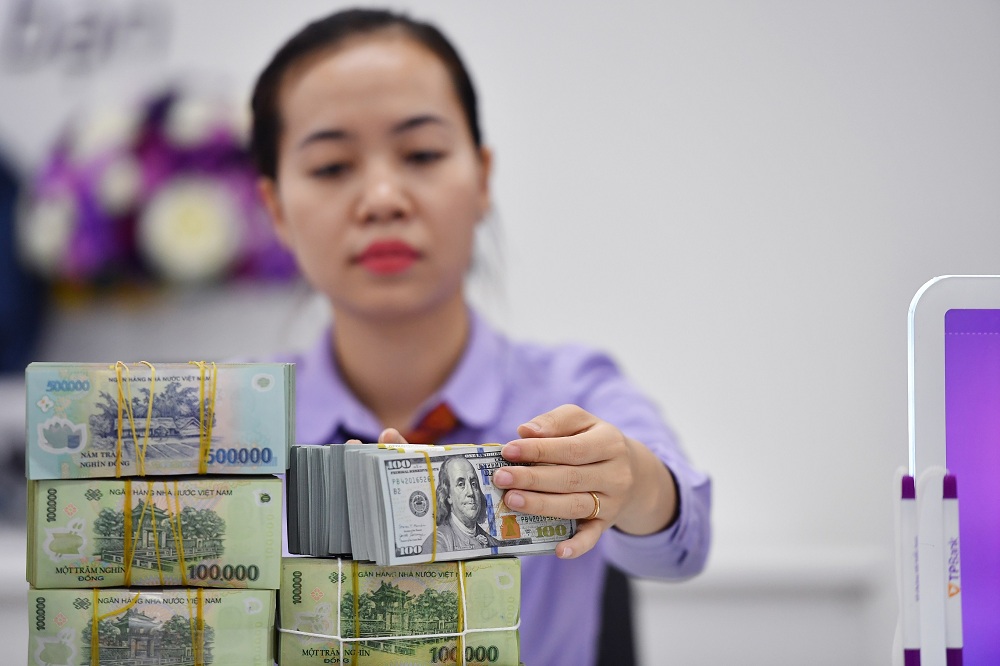Upward pressure on Vietnam’s policy rates
The State Bank of Vietnam (SBV)'s policy rates are under more upward pressure when inflation is on the rise and central banks have recently raised interest rates.

The SBV has suffered upward pressure on policy rates
>> Inflation pressure: The need for monetary tightening
In reaction to the FED's rate hike of 75 percentage points, many other central banks made the same move. As a result, analysts in Vietnam began to talk more about the possibility that the SBV would raise policy rates.
A lot of pressure
The HSBC’s research team estimates that the SBV may need to increase policy rates by 0.5 percentage points in 3Q22 before implementing three 0.25 percentage point rate increases in 2023.
MBKE shared the same sentiment as HSBC, but believes that this situation will occur in late 2022, lowering the refinancing rate to 4.5 percent.
As the SBV has maintained an easing policy for the past two years, Dr. Can Van Luc, Chief Economist of BIDV, predicts that Vietnam's monetary policy will undergo certain changes. However, a lot of people think that the SBV will stick with this approach at least through the end of this year.
In this context, SBV Deputy Governor Dao Minh Tu stated that despite pressure from the general trend of monetary tightening to control inflation, the SBV will continue to maintain the policy rates constant.
>> Banks continue savings interest rates “race”
A flexible policy needed
Dr. Can Van Luc said, despite the fact that bank liquidity is decreasing and credit demand is increasing, deposit rates may continue to slowly rise. Interest rates in the interbank market may rise, but if the SBV steps in to calm the market, rates will stay stable. Domestic interest rates typically rise as a result of all of these pressures.
In Dr. Can Van Luc’s view, credit institutions must minimize operating expenses if they want to keep lending rates stable or perhaps lower them. The SBV must also maintain proactive and flexible monetary policy in order to effectively coordinate with fiscal policy, preserve stable interest rates and exchange rates so as to help reduce inflation when other central banks' monetary policies shift significantly.
"Vietnam still upholds a steady macroeconomics under considerable strain. Therefore, it is unlikely that the SBV needs to increase the policy rates. High inflation is caused by cost factors such as increased raw material prices and disrupted supply networks rather than a lack of money availability", said Dr. Can Van Luc.








